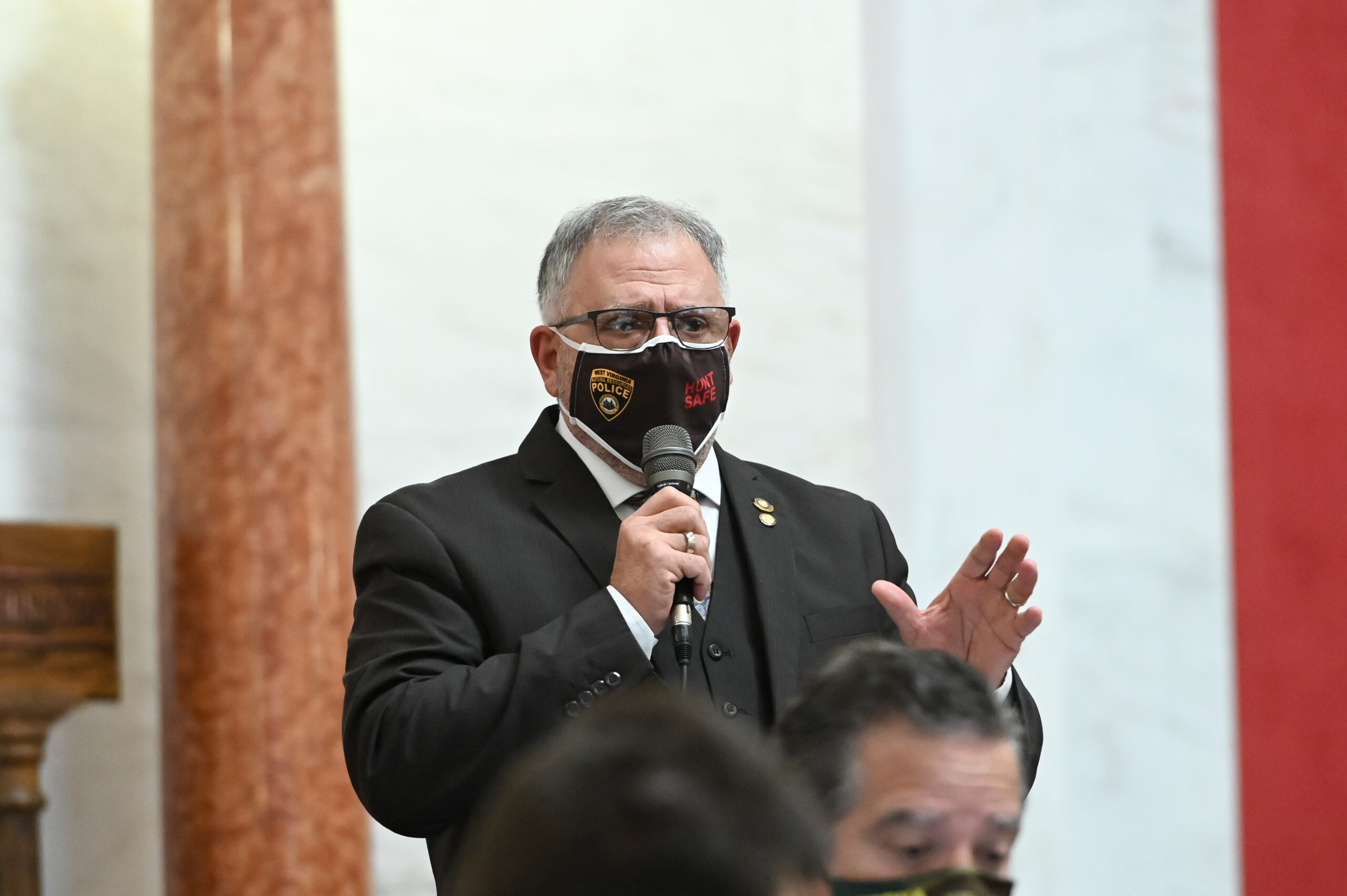MORGANTOWN – A one-sentence bill updating century-old education law sparked fears on the Senate floor Thursday that it could turn the state schools superintendent into a dictator.
It passed on party lines and heads to the House of Delegates.
Current law says that at the request in writing of any citizen, teacher, school official, county or state officer, the state superintendent of schools shall interpret the meaning of any part of the school law or of the rules of the state Board of Education.
SB 566 adds this sentence: “Any interpretation provided pursuant to this section shall be upheld and applied by affected entities and parties, including, but not limited to, the West Virginia Public Employees Grievance Board.”
Judiciary chair Charles Trump, R-Morgan, said the need for the bill arose following the passage of the 2019 education omnibus bill and some confusion over interpretations of the bill. SB 566 bill makes clear that those interpretations are the final word and have to be upheld by all parties.
Three Democratic senators summed up the concerns about the bill.
Sen. Richard Lindsay, D-Kanawha, said it will empower the superintendent to intervene and make decisions in grievance board processes. And this power will extend not only to the new laws but to laws in place for decades.
“That’s too much power for one person to have,” he said. And it puts a person with no legal training above the administrative law judges who handle grievances. He pointed out that an amendment proposed in committee to confine the final-arbiter power to new laws failed.
Sen. Mike Caputo, D-Marion, said this bill will allow a superintendent to shut down a grievance process and force the employee to go to circuit court. “That’s not how the grievance process is supposed to work.”
Sen. Mike Romano, D-Harrison, picked up on Caputo’s argument and said it forces employees, who don’t make a lot of money, and the public school system to undertake burdensome legal expenses.
“That puts superintendents in the position of the basketball player who’s calling his own fouls,” Romano said. They could have softened the bill to allow superintendents to make precedent that could be overturned when they’re clearly wrong. “Instead we have made it dictates from a dictator.”
Defending the bill, Education chair Patricia Rucker, R-Jefferson, said problems have arisen since passage of the omnibus. She cited a Barbour County issue where the county decided that a three-step pay increase specified for special education teachers was applied to non-teachers providing services.
The bill, she said, ensures consistency around the state.
Trump contradicted the Democratic objections, saying the bill does not give a superintendent authority to intervene or become a party in an existing grievance. It just says a grievance board can’t ignore or change an interpretation of law given by the superintendent, absent a court ruling. The law has been in place since 1923 and this just clarifies it, he said.
The vote was 21-12 with one Republican crossing over.
Sex trafficking bill
Across the building, the House of Delegates approved, with just one dissenting vote, a bill to enhance child sex trafficking law.
HB 2830 allows for child victims to access their juvenile court records without a waiting period. It alllows for legal liability of a person who aids, abets or assists a trafficker. And it requires that child welfare service include “comprehensive trauma-informed services that are specialized to the needs of child victims of sexual abuse and exploitation or child sex trafficking victims.”
The vote was 99-1 with one Randolph County Republican dissenting. The bill now goes to the Senate.
Tweet David Beard@dbeardtdp Email dbeard@dominionpost.com




